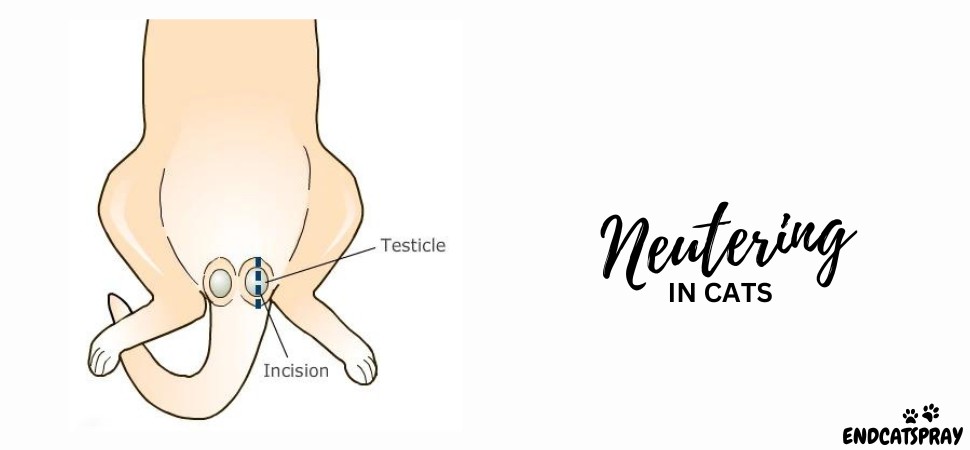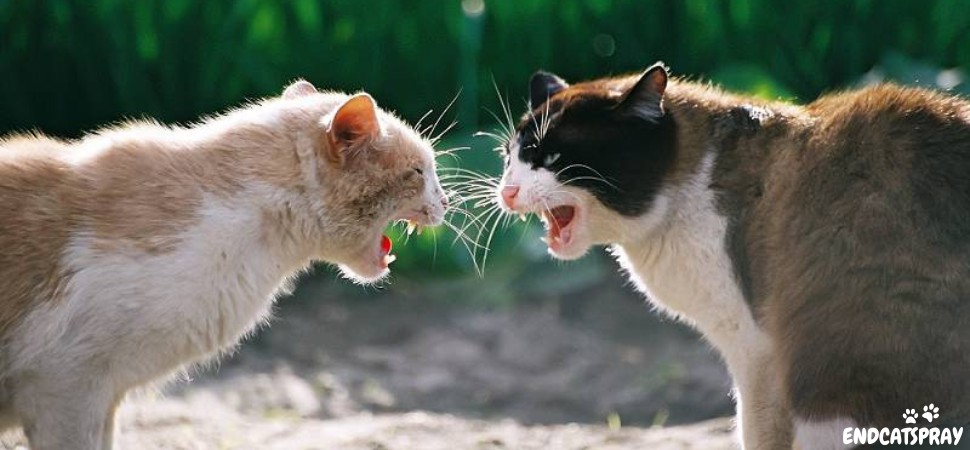Neutering is a safe, effective, and common surgery for male cats to prevent aggressive behavior as they seek mates and fight with other tom cats to maintain their territory. Neutering also stops the unwanted breeds of cats. In this article, we share the knowledge of our vet, Mehak, about male cat behavior after neutering.
What is neutering a cat?

Cat neutering and castration are the most common surgical procedures. The term neutering is used explicitly for male cats, and spaying is used for female cats; if you are unfamiliar with both terms, you call it sterilization. Neutering is scientifically known as Orchidectomy. In this procedure, both testicles are removed from the male cat. The two testicles descend from a position inside the abdominal cavity, where they can easily accessed for removal.
A male cat’s testosterone controls their sexual behavior, which includes aggression toward other male cats, searching for female cats, and territory marking. Neutering a male cat also prevents the risk of severe health issues. Another benefit of neutering their cat is to keep away from fathering unwanted kittens.
Key Takeaways
- Neutering and castration are the common surgical procedure specifically used for male cats.
- In this procedure both testicles are removed of male cat. A male cat’s testosterone controls their sexual behavior.
- After being neutered they are less aggressive and their spraying habit to define their area to other competitors are coming slow/reduce.
- The smell of their urine is less after neutering.
- After being neutered their recovery process is take approximately 7 days.
Signs your cat need to be Neutered:
There are several signs your cat needs to be neutered. When you feel your cat is trying to get out of the house and sprays different areas, they get more aggressive and yowl more frequently.
Male cat behavior after Neutering:
As we mentioned above, neutering can helps to reduce the undesirable behavior of male cats that are linked to testosterone. After neutering, the sexual desire of male cats will reduce by 90%. In some rare cases, male cats still show sexual interest in female cats.
Spraying:

The most problematic behavior in cats is urine spray. They spray to define their territory in various portions of the house. Neutering reduces the spraying habit of male cats by 85%. You must know that neutering your cat does not stop it from spraying. The smell of their urine is less after neutering.
Aggression:

Whether neutered or intact, cats can fight, but there are many more chances that two intact male cats will fight. This fight is also a competition between male cats; as we know, intact male cats have large territory to protect. Neutering reduces fight and abscess development in male cats.
Male cat recovery after Neutering:
After the procedure, the male cat may face some problems like dizziness or vomiting because of anesthesia. After discharge from the hospital, we recommend you give yourself a separate, quiet, and clean place to rest. Give them a small portion of food to reduce the chances of vomiting. Make sure to provide fewer walk-throughs and mild sound areas for better recovery.
Provide them with a litter box near the resting area. But if you feel they can’t move, use a litter sheet to prevent the dirt.
It will take 7 days for your male cat to completely recover after being neutered.
Can male cat spray after being neutered?
Yes, male cats can spray after being neutered, especially if the neutering is not done early; they can develop the habit of spraying. Some studies show that 77% of spraying is reduced after being neutered. After neutering, spraying may mitigate but not completely stop.
Can neutered cats still mate?

In some cases, yes, neutered cats still try to mate. However, this is very rare, and some specific reasons exist for this behavior. If the male cat is not neutered at an early age, then this can be a habit for them, or another possible reason is they still have testosterone in their body, which may develop sexual activities. It may take months for altogether the removal of testosterone from their bodies.
Conclusion:
As per my 12 years of experience, if you want a male cat in your house, I suggest neutering them; their behavior will change after that. They get less aggressive, and the habit of spraying urine in the house to define their territory is significantly slow. Their urine is less smelly, and this procedure also prevents health problems in male cats.
References:
- https://www.millplainvet.com/site/blog/2022/02/28/male-cat-neutering-recovery-behavior
- https://vcahospitals.com/know-your-pet/cat-behavior-and-training-cat-neutering-and-behavior#:~:text=The%20only%20behaviors%20affected%20by,castration%2C%20while%20others%20will%20not.
- https://www.tracyvets.com/site/blog/2022/04/29/neutering-male-cats-before-and-after










